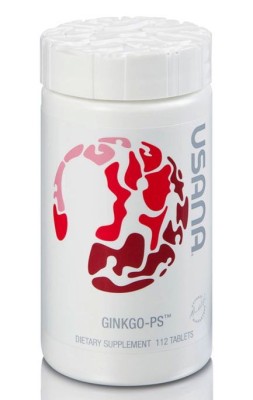Even “Healthy” Whole Wheat Is Linked to Heart Disease, Arthritis and Dementia
What could be more wholesome than whole-wheat bread? For decades, nutritionists and public health experts have almost begged Americans to eat more whole wheat and other grains.It’s bad advice.
Most of us know that white bread is bad for us, but even whole-wheat bread is bad, too. In fact, on the Glycemic Index (GI), which compares the blood sugar effects of carbohydrates, both white bread and whole-wheat bread increase blood glucose more than pure sugar. Aside from some extra fiber, eating two slices of whole-wheat bread is little different from eating a sugary candy bar.
What’s particularly troubling is that a high-wheat diet has been linked to obesity, digestive diseases, arthritis, diabetes, dementia and heart disease.
Example: When researchers from the Mayo Clinic and University of Iowa put 215 patients on a wheat-free diet, the obese patients lost an average of nearly 30 pounds in just six months. The patients in the study had celiac disease (a form of wheat sensitivity), but I have seen similar results in nearly everyone who is obese and gives up wheat.
NEW DANGERS FROM A NEW GRAIN
How can a supposedly healthy grain be so bad for you? Because the whole wheat that we eat today has little in common with the truly natural grain. Decades of selective breeding and hybridization by the food industry to increase yield and confer certain baking and aesthetic characteristics on flour have created new proteins in wheat that the human body isn’t designed to handle.The gluten protein in modern wheat is different in structure from the gluten in older forms of wheat. In fact, the structure of modern gluten is something that humans have never before experienced in their 10,000 years of consuming wheat.
Modern wheat also is high in amylopectin A, a carbohydrate that is converted to glucose faster than just about any other carbohydrate. I have found it to be a potent appetite stimulant because the rapid rise and fall in blood sugar causes nearly constant feelings of hunger. The gliadin in wheat, another protein, also stimulates the appetite. When people quit eating wheat and are no longer exposed to gliadin and amylopectin A, they typically consume about 400 fewer calories a day.
NOT JUST CELIAC DISEASE
Celiac disease, also known as celiac sprue, is an intense form of wheat sensitivity that damages the small intestine and can lead to chronic diarrhea and cramping, along with impaired absorption of nutrients. But wheat has been linked to dozens of other chronic diseases, including lupus and rheumatoid arthritis. It also has been linked to…Insulin resistance and diabetes. It’s not a coincidence that the diabetes epidemic (nearly 26 million Americans have it) parallels the increasing consumption of modern wheat (an average of 134 pounds per person per year) in the US. The surge in blood sugar and insulin that occurs when you eat any kind of wheat eventually causes an increase in visceral (internal) fat. This fat makes the body more resistant to insulin and increases the risk for diabetes.
Weaker bones. A wheat-rich diet shifts the body’s chemistry to an acidic (low-pH) state. This condition, known as acidosis, leaches calcium from the bones. Grains—and particularly wheat—account for 38% of the average American’s “acid load.” This probably is the reason that osteoporosis is virtually universal in older adults.
More heart disease. A diet high in carbohydrates causes an increase in small LDL particles, the type of cholesterol that is most likely to lead to atherosclerosis and cardiovascular diseases. Studies at University of California, Berkeley, found that the concentration of these particles increases dramatically with a high-wheat diet. The increase in small-particle LDL, combined with diabetes and visceral fat, increases the risk for heart disease.
A WHEAT-FREE LIFE
People who crave wheat actually are experiencing an addiction. When the gluten in wheat is digested, it releases molecules known as exorphins, morphinelike compounds that produce mild euphoria. About one-third of people who give up wheat will experience some withdrawal symptoms, including anxiety, moodiness and insomnia. My advice…Go cold turkey. It’s the most effective way to break the addiction to wheat. The withdrawal symptoms rarely last more than one week. If you’re really suffering, you might want to taper off. Give up wheat at breakfast for a week, and then at breakfast and lunch for another week. Then give it up altogether.
Beware of gluten-free products. People who give up wheat often are tempted to satisfy their craving by buying gluten-free bread or pasta. Don’t do it. The manufacturers use substitutes such as brown rice, rice bran, rice starch, corn starch and tapioca starch, which also increase blood glucose and cause insulin surges. Even oatmeal can cause blood sugar to skyrocket.
Switch grains. Small supermarkets now stock quite a few nonwheat grains, such as millet, quinoa, buckwheat and amaranth. They’re easy to cook, and they taste good—and they don’t have the gluten and other wheat proteins that trigger weight gain, inflammation and insulin resistance.
Helpful: If you aren’t willing to give up wheat altogether, you can substitute an older form of wheat, such as spelt or kamut. These grains haven’t undergone all of the genetic modifications, so they’re somewhat better for you than modern wheat. Any form of wheat can be a problem, however. You’ll want to limit yourself to small servings—say, a few ounces once or twice a week.
Get plenty of protein. Protein satisfies the appetite more effectively than carbohydrates. Eat eggs for breakfast and chicken salad for lunch. For dinner, you can have fish or even steak.
New finding: New research has shown that people who eat a reasonable amount of saturated fat in, say, red meat (about 10% or a little more of your total fat calories) have a reduction in small LDL particles, as well as an increase in protective HDL cholesterol.
Source: William Davis, MD, a preventive cardiologist and medical director of Track Your Plaque, an international heart disease prevention program. Based in Fox Point, Wisconsin, he is author of Wheat Belly: Lose the Wheat, Lose the Weight, and Find Your Path Back to Health (Rodale). www.WheatBellyBlog.com




